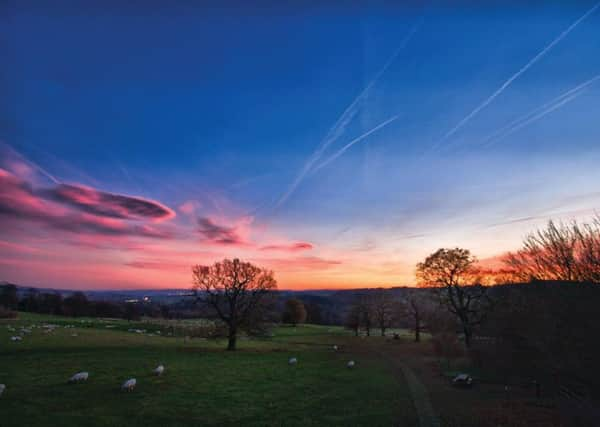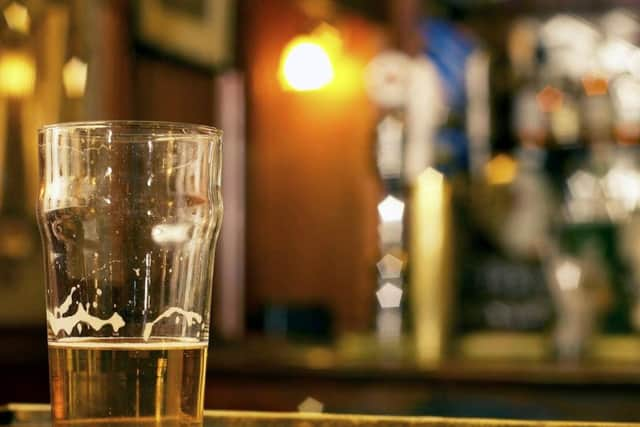Rural areas hit hardest by pub closures


Across Yorkshire, more than 14 per cent of pubs have closed in the past decade, new figures show, with up to one in five in some areas having being shut down since 2007. But while bigger cities have seen a renaissance in craft and ale industries to replace these lost traditions, experts warn, rural communities are bearing the biggest burden.
“These figures are shocking,” said national director and campaigns coordinator of the Campaign for Real Ale (Camra), Andy Shaw. “They show the stark reality of just how serious the situation is. So many of these closures will have been the loss of a pub to a local community. For many, each one could have been the last pub in the village. It’s sad but true that it has a huge impact on communities that use these pubs.”
Advertisement
Hide AdAdvertisement
Hide AdThe new figures show that 694 pubs have closed in Yorkshire in the past 10 years. In Leeds, which has seen the biggest decline, that rate of closure is more than 22 per cent of its total pubs.


While there has undoubtedly been a decline in use with changing habits over time, Camra says, the biggest hurdle has been the value of land that comes with these old buildings. Cities have seen the largest loss, countered by a boom in new industries, yet in rural areas many of these old buildings have been bought for their land value.
“In countryside areas, we see pubs just disappear,” said Kevin Keaveney, Camra regional director. “House prices, in these areas, are very expensive. Anything that can be converted or demolished is, and even the car parks are a full building plot.”
Their loss can have a huge impact, he adds: “It may be a pub, but it’s the history of a whole community that’s gone.”
Advertisement
Hide AdAdvertisement
Hide AdOne in six of all Yorkshire’s closed pubs have become housing, the figures show, while 12 per cent have been demolished altogether. A legal loophole which allows pubs to be demolished or converted to a range of uses without requiring planning permission is soon to be closed after the passing of a new bill, and Camra hopes this can slow down the rate of decline from its peak in 2015.


A spokesman for the Department of Communities and Local Government said: “The Great British pub is the beating heart of communities up and down the country. That’s why we’re looking at how we can protect pubs through the planning system and cut red tape for landlords, so local people can keep the pubs they love.”
Village’s fight to preserve future of own pub
A rural tradition, involving a roaring fire and a round of best bitter. Village pubs, an escape from the bitter winds of a winter walk or a haven of good gossip, were once the base for every big decision. Landlords, strict and stern and with the power to pull a pint, were the unspoken rulers of every village fiefdom.
The demise of the traditional village pub has been well-documented. The value of land for housing, it seems, is worth far more than the role they once served. But to communities, a village pub is still its beating heart. And some are fighting back.
Advertisement
Hide AdAdvertisement
Hide Ad“Pubs are a massive part of our culture,” said landlord Stuart Miller of the George and Dragon, CAMRA’S pub of the year. “It’s a very British thing to do. It’s what keeps us a community.”
The Hudswell pub’s story, some years ago, was all too familiar. A pub struggling in a tough time, up for sale but with no interest, it was languishing empty and unloved. But the villagers were preparing for battle. This was their pub, and if nobody else would take it on, they would buy it themselves. They did, in 2010.
Now a co-operative, it is thriving. It is still very much a traditional a pub, serving pints and pies. But it is also the home of the local library, a shop and community allotments. And with the backing of its community buyers, business is booming.
“We liked the community aspect of it,” said Mr Miller, 37, who runs the pub with wife Melissa. “They have a lot of buy in to the pub - they want it to stay open and support it. It’s one of the things that attracts people to the pub.”
Advertisement
Hide AdAdvertisement
Hide AdMr and Mrs Miller run the pub as a business, in that they make their own decisions. Having always wanted to run his own business, and a big fan of beer, it was the natural decision. But he wasn’t prepared for how hard the industry would be, he said.
“We live here, it’s our home,” he said. “Our whole life revolves around this pub. It is a very hard thing to do. It is a very hard industry. Business rates are changing, and there’s talk of VAT going up. That would impact on everybody. It’s not an easy world, and pubs are struggling. The community here has a really big buy-in. They really wanted the pub to stay, they wanted the village to have a pub. That’s why it works.
“It’s the centre of the village. Everybody knows they can pop in and see a friendly face. A pub should be the hub of the community. We have a little shop here as well. In a village like Hudswell, there wouldn’t be enough trade for an independent shop to survive, but this one is used by everybody, for their papers, for essentials like milk and eggs. That works, especially in more rural areas, where there aren’t any other amenities. Pubs have a future. There is still a demand there, for good quality pubs.”
Across Yorkshire, 17.5 per cent of closed pubs have been converted through a loophole in planning law which means they don’t need permission for change of use.
Advertisement
Hide AdAdvertisement
Hide AdA change in the Neighbourhood Planning Act is coming into force from May 23 that means any such applications will now have to be determined by local planning authorities. CAMRA is hopeful that the change in the law can soon slow down this rate of decline which peaked in 2015.
“The level of closures that we are seeing has been going on for decades and in the past couple of years has reached feverish activity,” said Andy Shaw, national director and campaigns coordinator. “Pubs may often be owned by pub companies, but they are assets of the community. Finally communities have been given the right to oppose change to their assets.”
Pubs ‘must adapt to survive’ to changing demand
Pubs must diversify to survive, the regional director of the Campaign for Real Ale has warned, as habits have changed with the decline of Yorkshire’s traditional industries.
With the pit closures came pub closures, Kevin Keaveney said, and more followed with the loss of traditional factories and steel works.
Advertisement
Hide AdAdvertisement
Hide AdIn York, some of the city’s favourite pubs disappeared as they served workers from sites like the Carriage Works or the Chocolate Works. But here, he said, the city has seen a huge resurgence of craft ale and bar industries as owners diversify to meet changing demand. “The city of York is a complete oddity,” he said. “For every pub that closes, two more takes its place. We are a more mobile society today.”
Mr Keaveney cites some of York’s best known lost pubs; The Locomotive on Watson Street, which closed in 2010. The Cygnet, was once a favourite with the chocolate workers. There was the Edward VII in Nunnery Lane, and The Reindeer of Lowther Street, which is now a supermarket. There’s The Magpie, and The Yearsley Grove near Huntington Road, he said, which was once an old coaching stop. Another, on Huntington Road, has become a church and modern day community centre, The Turf Tavern, in Acomb, now housing, and the Bumper Castle, once an officers’ mess during the war, now a restaurant.
“We talk to people that used to use the pubs one or two nights a week,” he said. “They would go straight from work for a drink, all the football teams, darts and dominoes. These pubs ran youth teams, they were the focal point of the community. There were bus trips to Scarborough, Bridlington and Whitby.
“All that’s disappeared. Communities have changed. Bishopthorpe Road was for chocolate workers and railway workers, now it’s for university staff. There’s a new community started here. It went right down as far as it could go, and now it’s thriving. And it’s the same across Yorkshire’s working cities – Leeds, Bradford, Huddersfield, Doncaster. They all had very traditional industries. When the pits went, these villages had it tough. When the mines went, the jobs went. That did for a lot of pubs.
Advertisement
Hide AdAdvertisement
Hide Ad“The ones that will survive will be the ones that diversify.”
Yorkshire’s cities booming with new craft industries to fill the gap
Big cities have taken the biggest hit when it comes to pub closures, the Campaign for Real Ale (Camra) has revealed, but in the region’s largest urban areas it
has made way for a huge resurgence in craft ale and other industries.
Advertisement
Hide AdAdvertisement
Hide AdMore than one in five pubs in Leeds has closed since 2007, new figures show, with 122 – more than 22 per cent – closing in the city in the past decade. But the region’s bars are thriving, Camra has said, as it shows how Yorkshire’s cities have adapted to a change in demand. And across the region, there has been a huge boom in the popularity of small-scale breweries.
“Sheffield had no breweries until a few years ago,” said national director and campaigns coordinator Andy Shaw. “There’s now 28, and eight micro-breweries. That’s great, it’s creating a diversity. Most of our pubs are traditional Victorian buildings, and while they still have a very real role to play, there are changing demands. The mix, and ability to adapt, has got to be a good thing.”
The Leeds scene in particular, Camra has said, is booming.
“We’ve reason to be positive,” said Richard Coldwell, from Leeds Camra. “It’s always sad when a pub closes down. But Leeds is thriving, and evolving, and changing. The statistics show the decline of pubs, but they don’t show what’s happening with bars. It’s seems that for those that shut down in Leeds, another pops up. The city is thriving. People are coming here for a drink.”